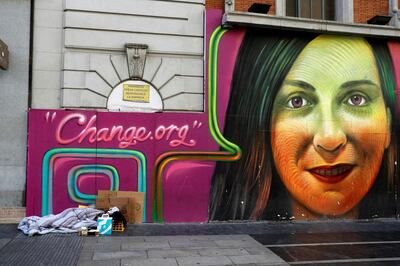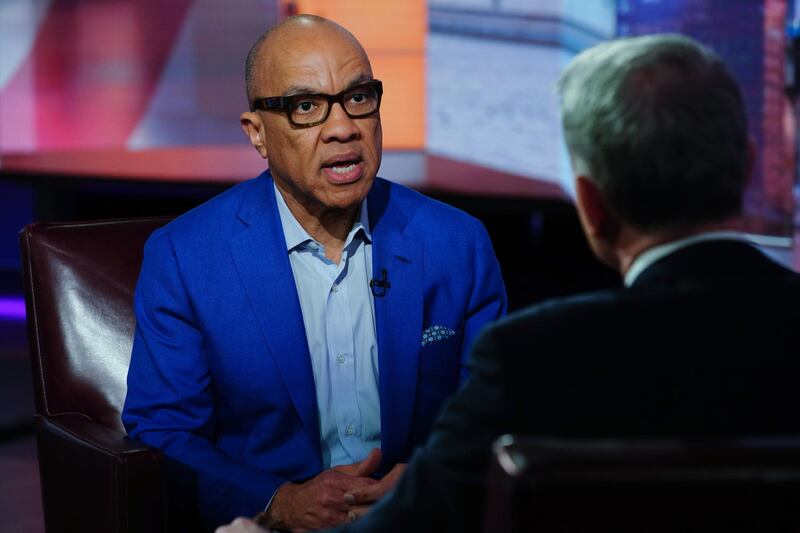It has been 130 years since Andrew Carnegie wrote The Gospel of Wealth, an essay that is still considered a foundational document in the field of philanthropy. Now comes a new one, from Ford Foundation president Darren Walker. It is called From Generosity to Justice and urges philanthropists to work on the root causes rather than just the consequences of injustice. And it argues for companies to create a more inclusive model of capitalism.
How? Can it even be done? Are these no more than buzzy phrases for fuzzy concepts? In any case, don't companies all too often nowadays use philanthropy as a form of public relations or advertising? In his book Winners Take All: The Elite Charade of Changing the World, Anand Giridharadas argues that many elite philanthropic initiatives seek to maintain the power structures they claim they want to fix. So, is "woke" capitalism, as it is called, nothing more than a hip way to be hypocritical? Corporate Social Responsibility – and the newer Environmental, Social and Governance factors in the investment process – does not seem to have had much impact thus far. Oxfam reported in January that globally, the 26 richest individuals control as much wealth as 3.8 billion of the poorest.
The first point to note is the significance of Mr Walker's new gospel of wealth. Admittedly, he is not Carnegie, the Scottish-American industrialist who was worth the equivalent of $309 billion today, or more than the three richest Americans of 2018 combined – Jeff Bezos, Bill Gates, Warren Buffett. But Mr Walker leads one of the world's wealthiest private foundations that is committed to the cause of social justice. And his intervention comes at a crucial moment. Around the world, there is a growing sense that capitalism is, to use the popular word, "broken". By this, people mean that unrestrained capitalism is entrenching inequality among peoples and companies by allowing the perpetuation of advantages enjoyed by the richest individuals and businesses.
This is why economists are calling for a new balance between the market, state and civil society. In the US, parts of the political debate are skewing towards the outright vilification of rich people. Even a British newspaper that predominantly serves business titans, investment bankers, market-watchers and suchlike on either side of the Atlantic, recently called for a “reset” on capitalism. And that was right after the Business Roundtable, an association whose members are CEOs of major US companies, declared that firms should serve stakeholders as well as shareholders. Companies should look after the bottom line as well as customers, workers and the communities within which they work, and be environmentally friendly too, the BRT said.
It is being called stakeholder capitalism, an idea that seems to owe some of its notions of social justice to an allied concept – the “stakeholder economy” – unveiled by Tony Blair in Singapore in 1996. At the time, Mr Blair was campaigning to take his Labour party to victory in Britain’s impending election and he suggested that the way forward for a country suffering from the aftereffects of Thatcherite free-market license was "a stakeholder economy in which opportunity is available to all, advancement is through merit and from which no group or class is set apart or excluded. We need a country in which we acknowledge an obligation collectively to ensure each citizen gets a stake in it."

In sum and substance, those are the basic aspirations advanced by Mr Walker’s new gospel of wealth when he calls for systemic reform to root out inequality and injustice. It is worth noting that unlike Carnegie and many other attempts to rewrite his "gospel", Mr Walker does not appear to take a paternalistic view of the role of business.
Carnegie saw “the millionaire [as] but a trustee for the poor; intrusted for a season with a great part of the increased wealth of the community, but administering it for the community far better than it could or would have done for itself”. In other words, Carnegie thought a responsible business should do well and then do good. In 2013, John Fullerton, a former JP Morgan managing director and founder of the Capital Institute, which promotes a more just and sustainable way of life, argued that Carnegie’s document should be renamed “the Universal Purpose of Capital”. Mr Fullerton added that the purpose of capital should be acknowledged as follows: “To catalyse a shift to a regenerative economy that delivers shared prosperity and respects the biophysical boundaries of the planet." In other words, a responsible business must set itself the purpose of doing good.
Mr Walker, by contrast, says “it is a mistake for philanthropy or business to supplant the role of government”. One way to read that statement is that business should do its job ethically and well – after all, as Mr Walker says “philanthropy wouldn’t exist without capitalism” – but it is for government to provide properly for the people’s welfare, including health, shelter, education and a liveable environment.
It seems to me that the best gospel of wealth would be for businesses to do good by doing well and paying their workers properly. It is also essential for business to pay sufficient tax in order for government to invest in public services. That is the way it is done in the Nordic countries where capitalism is flourishing as is the wider society.
The objective of philanthropy should be to make itself obsolete and this can only happen when business gets to do its own job within the parameters of the law, and governments have the resources to provide for people’s wellbeing.
Muddling the boundaries serves no one well.






